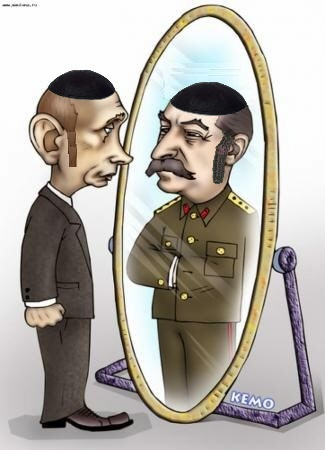 By Dmitry Volchek
By Dmitry Volchek
Jan. 18, 2020 Anno Domini
Translated from the Russian
In December, the Gordon website began publishing chapters from the book by former State Security Lieutenant Colonel Vladimir Popov, The Conspiracy of Scoundrels. Popov served in the KGB of the USSR from 1972 to 1991, worked in the Fifth Directorate, in departments that oversaw those traveling abroad, creative unions and international sports cooperation. In 1995 he emigrated to Canada. In 2009, the book “The KGB Plays Chess” was published, written by Vladimir Popov, historian Yuri Felshtinsky and famous chess players who emigrated from the USSR – Boris Gulko and Viktor Korchnoi.
In the new book “The Conspiracy of Scoundrels” Vladimir Popov talks about how Soviet writers and athletes collaborated with the KGB, about the surveillance of Vladimir Vysotsky, the unsuccessful recruitment operation of Maria Rozanova, the difficult relationship between Yevgeny Yevtushenko and the KGB. One of the main topics of the book is the history of the coming to power of Vladimir Putin and other immigrants from the Soviet special services.
Vladimir Popov told Radio Liberty about how a “conspiracy of villains” from the KGB brought the current president of Russia to power.
In the book “The KGB Plays Chess” I found a mention of our radio station. You tell how the KGB intercepted a telephone call from Radio Liberty employee Yuri Dulerain from New York to his colleague Yuri Zmiy, who worked in Munich. In this conversation, Dulerain mentioned a meeting at the Olympic Games in Lake Placid with two Soviet journalists who were critical of Soviet reality, and you were instructed to find them …
Yes, all these conversations were intercepted, and I had to deal with it. After all, the fact that a Soviet journalist visited the room in the press center of the Olympic Games, in which the correspondent of Radio Liberty was, was evidence of political unreliability. And these two Soviet journalists were there, and we had not only radio interception, but also intelligence confirmation. One of the journalists, who was my agent, came and wrote a report about it, and then the radio intercepts came.
How did you wiretap international telephone conversations?
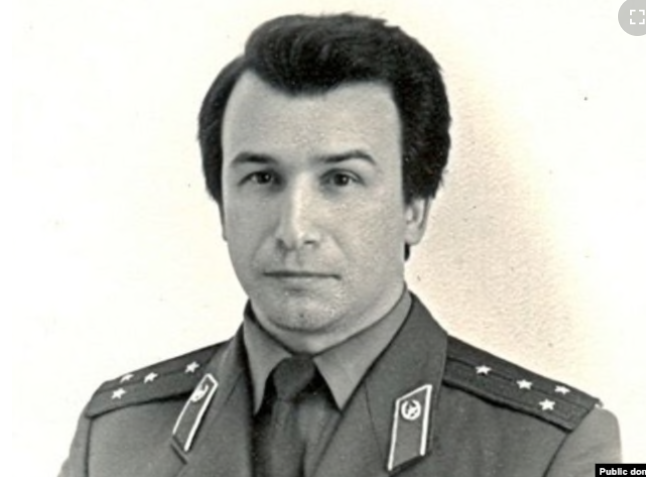
The so-called hydrographic vessels were sailing, but in fact they were engaged in interception. This system was called “Arctic”, and all intercepted conversations were collected in a bulletin and published. Everything is intercepted! When I talk about this, I also think about my own safety. After all, what I am telling about the activities of the KGB is also unpleasant for the current special services. Litvinenko forgot about this, behaved extremely imprudently, which was the reason for his death.
In an interview with Norwegian journalists three years ago, you said that you wanted to “take Litvinenko’s place and tell how the KGB acted in the Soviet Union, and how the FSB, the successor to the KGB, is acting today.” Do you still have this desire?
Yes, after the death of Litvinenko, I myself turned to his co-author, Yuri Felshtinsky, a person deeply respected by me, and offered him the materials that I had. And some of these materials were included in the book “The Corporation: Russia and the KGB in the Time of President Putin”. But at that time my mother and sister were alive, they lived in Moscow, and I did not want my name to be mentioned. Then, together with Felshtinsky and grandmaster Viktor Korchnoi, we prepared the book “The KGB Plays Chess”, and my name is there. During the chess tournaments, I processed all the encryption messages that came from the residency, and I knew all the behind-the-scenes struggle. And I came up with the title of the book, because instead of doing serious business, we really played chess. For example, outside surveillance was established for the chess player Boris Gulko, who was not allowed to go to Israel.
Outside is of two types. In the one that went after the employees of foreign embassies, personnel intelligence officers worked, and there people were quite qualified. The outside, which was provided by our Fifth Directorate, was mainly engaged in spying on ordinary people and often worked unprofessionally. The person, whom they began to follow, quickly noticed it and began, as they said in outdoor, “to walk with his head back.” And so they watched poor Gulko and made a dissident out of him by their own stupidity. I said right in my department that Gulko needed to erect a monument of gold during his lifetime. After all, a day of work of the outdoor brigade is 5,000 rubles at that time, the cost of a “Zhiguli”. Just one day! And she followed him constantly. And in order to ensure auditory control over him, he was given an apartment, which, of course, he did not suspect. But, since the house was completely new, it was not equipped with telephones, it was still necessary to run cables. Therefore, in the next house they equipped a safe house, transferred from the roof of the building in which Gulko lived to another building, the so-called air, and there worked around the clock women, employees of the 12th department, which exercised auditory control, and they recorded everything that was in his apartment was happening. In general, colossal funds were spent on nothing. That is why I called the book “The KGB Plays Chess”.
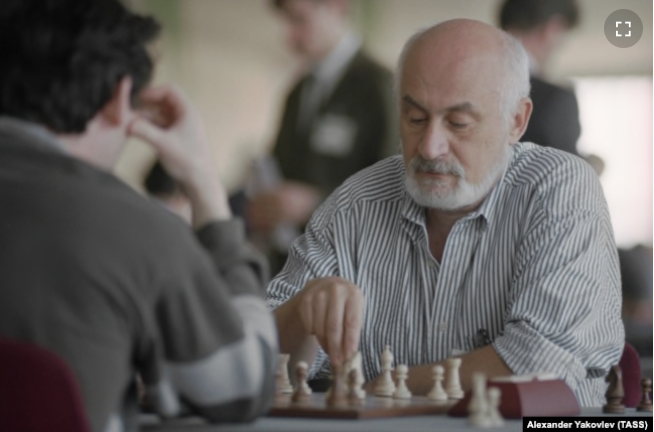
Your new book is called The Conspiracy of Scoundrels. Who are these scoundrels?
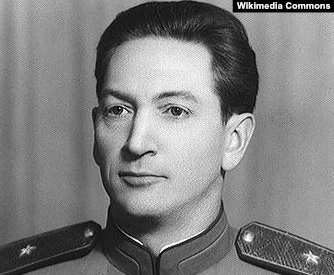
This is the third version of the manuscript, but the title was like this from the very beginning. In 1967, Yuri Andropov was appointed chairman of the State Security Committee and immediately attracted Major General Yevgeny Petrovich Pitovranov, an outstanding man in his own way, to covert cooperation, and began to consult with him.
He began work in the NKVD in 1938. In 1943 he received the title of State Security Commissioner. He headed the Ministry of State Security of the Uzbek SSR. In 1946 he was appointed head of the Second Main Directorate of the USSR Ministry of State Security (counterintelligence department). Since December 1950 – Deputy Minister of State Security of the USSR.
On October 29, 1951, he was arrested on charges of participating in the so-called “Zionist conspiracy.” He was interrogated and tortured by the MGB, but did not give a confessionary statement. In prison, Pitovranov created a plan for the reorganization of intelligence and counterintelligence work, addressed personally to Stalin. He proposed to widely use the method of provocations in the fight against “Jewish nationalists” and to create imaginary anti-Soviet Zionist organizations throughout the country. Even before Stalin’s death, the charges against Pitovranov were dropped, and he headed the Directorate for Intelligence Abroad of the GRU of the Ministry of State Security of the USSR. In 1962-1966 he was the head of the Higher School of the KGB of the USSR. In February 1966, he joined the current KGB reserve and was elected deputy chairman of the Presidium of the USSR Chamber of Commerce and Industry and headed it until 1988.
Andropov met with Pitovranov exclusively in safe houses and listened to his advice. Pitovranov had two closest students – Philip Bobkov and Boris Ivanov. Pitovranov raised Ivanov to the first deputy head of the First Main Directorate. I think it was thanks to Pitovranov that Bobkov became the head of the Fifth Directorate of the KGB.
At the instigation of Pitovranov, the “Firm”, as he called it, was created. In the system of the First Main Directorate (foreign intelligence), there was department C, illegal intelligence, it had a department B, after the betrayal of his employee Lyalin, it was renamed into the 8th department. In the 8th department, a structure was created that was engaged in activities beyond the control of the leadership of the First Main Directorate and the committee as a whole. All documentation went directly to Andropov; no one except Andropov saw this. Basically, Pitovranov collected incriminating materials on Brezhnev, his family members and his immediate entourage in order to show Andropov that there was no owner in the country. In the days of Khrushchev, fearing a repetition of reprisals against the party-Soviet apparatus, the Central Committee adopted a resolution prohibiting the state security organs from concentrating materials on representatives of the party-Soviet nomenklatura. But the Chekists are tired of party influence. The so-called “Firm” of Pitovranov concentrated materials not just on the party and Soviet nomenklatura, but on the general secretary and his closest circle, including his son. Yuri Brezhnev, who served as First Deputy Minister of Foreign Trade, received expensive gifts from representatives of various firms, signing contracts that, to some extent, caused economic damage to the country, and at the same time enriched himself. But next to Andropov there were two spies from Brezhnev – Tsinev and Tsvigun. Once documents from the Pitovranov group, addressed to Andropov, accidentally fell into the hands of Tsinev. He ordered to destroy them immediately. But these materials, despite Tsinev’s instructions, were not destroyed.
That is, already at that time, the idea was born and secretly promoted to gradually push the party officials out of power and replace them with people from the KGB? And this “conspiracy of villains” in the end was crowned with success with the coming of Putin to power?
Quite right. Pitovranov, Ivanov, Bobkov did just that. On the instructions of Bobkov, officers were introduced to the Central Committee who were engaged in the withdrawal of the party’s foreign exchange funds abroad, scattered this money in such a way that they were not affiliated with the Communist Party, but continued to act in its interests. The funds were accumulated by this group. Boris Semenovich Ivanov, a former intelligence officer, operated with billions of dollars. Where did these funds go? I talk about this in my book. In particular, at the Russian-American University, which was headed by Alexey Podberezkin. Dmitry Rogozin, the current head of Roscosmos, also worked there. They came from the Committee of International Youth Organizations, both were KGB agents. At first, it was not at all Putin who was considered by them as president, he jumped out like the devil out of a snuffbox. For the Moscow Chekists, Putin was an outsider who pushed them aside. But I write in my book that Putinism will not disappear, it will remain. I have an epigraph from Edgar Morena: “Stalin did not die, he dissolved in the future.” In fact, all of Putin’s policy is a continuation of Stalin’s policy: strengthening the army and navy, an attempt to dominate the world. Moreover, Putin puts himself on a par with Stalin. Quite recently, when he was asked about the possibility of returning part of the Kuril Islands to Japan, he said: “Dad took everything, and that’s the end of it.” It’s about Stalin. That is, he is an equal with him!
And you consider General Pitovranov a forerunner, a kind of ideologist of the seizure of power by the Chekists?
You have identified correctly. Ideologue and forerunner, just like that.
If we compare the KGB in which you worked and the FSB, what is in common and what is different now?
In the days of the Soviet Union, career was the main thing for the employees of this organization. For scouts – the opportunity to travel abroad. This is how we lived. And now they have got full control over the country, they are shamelessly robbing it, protecting businesses. This is a fundamental difference. The former Committee was under the control of the Central Committee of the CPSU. To what extent is another question, but nonetheless. And there is no control over these.
Another difference from the Brezhnev era is the scale of special operations abroad, including murders. Apparently, the attempts were not only on the Skripals and Litvinenko, there are many more cases of which we do not suspect.
In recent years, the Main Intelligence Directorate has quite widely declared itself, which did not exist before. I suppose that, first of all, this is Shoigu’s desire to position himself as a possible successor. He is very popular in Russian society. The GRU declares itself in many countries with precisely such actions – brutal, absolutely illegal. And the structure is under the leadership of Shoigu.
But as far as the participation of special services in sports events is concerned, nothing has changed. You tell in your book about KGB officer Boris Pakin, who was accredited as a doping inspector at the Moscow Olympics and replaced positive tests with clean urine samples collected from athletes before the Games. Now the FSB is doing the same, only now it all became known thanks to Rodchenkov and other informants.
Yes, that’s right, an employee was introduced to the anti-doping commission at these competitions, everything was carried out according to the same scheme.
It is interesting that many of the characters in your book turned out to be associated with Vladimir Gusinsky’s group “Most”. You write that Gusinsky was a KGB agent under the pseudonym Denis, and then he hired KGB officers. Philip Bobkov was his head of the Analytical Department. But then the NTV channel came into conflict with Putin, and Putin finished off Gusinsky’s business.
Precisely because, as I said, Putin was a stranger. It is widely believed that Bobkov went to Gusinsky for some position. No, Bobkov created this structure for himself – it was a mini-KGB. By the same analogy, Korzhakov later created the Presidential Security Directorate, also as a mini-KGB.
Was the “Most” group a mini-KGB?
Yes. That is why Bobkov attracted many employees of the Fifth Directorate. They were engaged in serious analytics, collected incriminating material on politicians of that period. On the initiative of Bobkov, Gusinsky entered into a confrontation with Putin, eventually lost his business and was forced to flee the country.
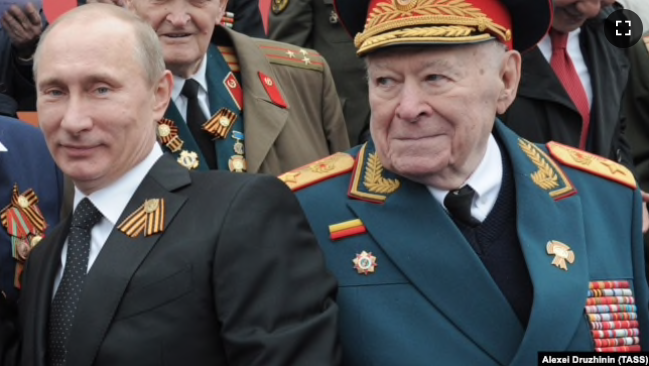
That is, the two groups from the KGB were in conflict over spheres of influence?
Quite right. I will repeat again that Putin emerged as an unexpected figure, he was not at all planned for this position, he was there by chance. They relied on Luzhkov.
Another topic of your book is the intelligentsia and its relations with the special services. You talk about how prominent figures, such as Yevtushenko, were forced or voluntarily cooperated …
Either forced under some kind of pressure, or proceeding from the fact that without loyalty to the state security bodies there is no way to take a position in society. If you are disloyal, you will not be published, there will be no career opportunities.
You mention Yulian Semyonov among the KGB officers. People from his entourage believe that he did not die of illness, but was poisoned, because he knew too much.
I do not exclude this. He was really close to Andropov, and Andropov sympathized with him.
At what point did you dislike the committee?
The maturation of internal protest went on for years, not overnight. The fact is that I did not strive for this organization. There was such an expression in the Committee: from the street and from the plow. From the street – these are those who came not from the Higher School of the KGB, but from civilian universities, but from the plow – who did not have influential relatives. So I was from the plow and from the street. I studied at the evening faculty of the All-Union Correspondence Law Institute, now it is the Law Academy. Nearby, on Krasnaya Presnya, there was the Institute of State and Law, and I had a dream to get a higher education and work at this institute. Although now I do not understand what kind of state and law could have been in the Soviet Union. Upon completion of the third year, I received a letter: “To resolve the issue of getting a job in your chosen profession, please call this phone number.” I called, I was invited to the reception at the Kuznetsky Most. A man named Aleksandrov, nicknamed Rashpil, says: “We know: you served in a group of Soviet troops in Germany, you have been the head of the group for three years, you study well. We offer you work in our organization.” I said: “I served as a soldier for three years in the Soviet army, that was enough for me. I do not plan to devote 25 years to military service.” No wonder he was nicknamed Rasp, he says to me so softly, softly: “You must clearly understand that by refusing our organization, you are showing political disloyalty. education, and even more so to work in the field of law enforcement? ” I got the hint. I think: okay, I’ll go and take a look. That was my mistake. Initially, I worked in the secretariat of the 10th department of the KGB; its structure also included the detention center in Lefortovo. I and several other employees delivered secret mail to all divisions of the Central Office of the Committee, handed over mail to field communications on Malaya Lubyanka. Then they enrolled me in the Second Section of the 10th Division, which was engaged in special checks on the trips of Soviet citizens abroad. There were two divisions: one was engaged in private trips, and the second – those who were sent abroad by state and public organizations. I, having received the rank of junior lieutenant, worked for another year. Then I was offered to transfer to the Fifth Directorate. And I, delivering documents to different divisions, came to the Fifth Directorate, saw the shelves there: TASS, APN, other materials, and understood what an array of interesting information was received. It was my dream! So I ended up in the Fifth Directorate. Yevgeny Fedorovich Ivanov also worked there, who later headed the analytical group at Most-Bank. Our division, the First Division, dealt with the creative intelligentsia. Television, scientific institutes, all writers, the USSR Writers’ Union, the Institute of World Literature, Literaturnaya Gazeta, the Literary Institute, and so on. A completely different side of Soviet reality was revealed to me. All this aroused rejection in me. After two years of work, I wrote a report: “I ask you to fire me, because I do not see myself in this structure.” The dismissal of any employee is a scandalous story. They just talked me out of it. A year later, they were pushed into the so-called sports department. It was created in 1977, taking into account the preparations for the Moscow Olympics. I served in it. And for 19 years within the walls of this organization, I have not met a single Chekist with a “cold head, warm heart and clean hands.” And hence the negativism.
For 20 years the country has been under the rule of the Chekists with a Chekist president. You said recently that you expect the disintegration of the country and are sure that there will be no sense from this power?
Will not. I, like many, had hopes during the perestroika period, but in 1993 I realized that nothing would change. I then told my friends and relatives that the Committee would be in power, and they looked at me like a madman. In 1993 I said that I did not want to live in this country. My colleagues will be in power, and I do not want my family to live under such a regime. And I left.
How did you get the confidence that the KGB would come to power?
Partly intuitive, but intuition is the sister of experience. I had my own business, there was an office on Mayakovsky Square, former colleagues came to me and gritted about what was happening. They hated Yeltsin, all his transformations. And I was on the side of Yeltsin, because if not for Yeltsin in 1991, the country would again become the same perfect Soviet Union. I saw this negativism, saw how my former colleagues were infiltrating into various structures, and it was quite obvious that they would have power. I had no doubts.

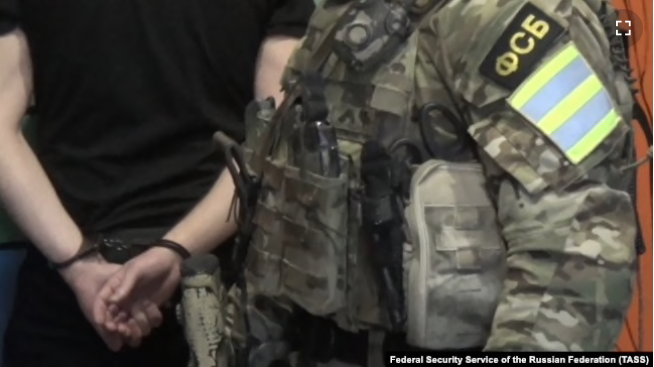
Putin called Stalin “daddy”.
In reply to a question on the disputed (with Japan) ownership of the Kuril Islands, which were ceded to the Soviets in WW2:
“Daddy took everything & that’s all & that’s the end of it. Father of the peoples.”
https://ria.ru/20190906/1558407983.html
SERGEI Khrushchev – son of Nikita
THE REAL PUTIN
Yuri Felshtinsky, a collaborator with Alexander Litvinenko, lists in a 2004 book the multiple assassinations that occurred when PUTIN was FSB Director July 1998- Aug 1999.
List
https://avilnid.livejournal.com/58721.html
Book
https://mnogobook.ru/nauka_obrazovanie/istoriya/249280/str1.htm#book
In a 2010 book, Russian researchers detail crimes of PUTIN, when deputy-mayor of St Petersburg
“According to many people who knew Putin closely, his desire for personal enrichment & absence of moral barriers manifested itself at the start of his career.”
https://web.archive.org/web/20100119201829/https://kasparov.ru/material.php?id=4B4ED41F634A4
“When Stalin was premier, he did not run the Soviet Union, the KGB did, and the Jews ran the KGB.”
3rd para
https://nationalvanguard.org/2021/01/an-interview-with-sergei-khrushchev/